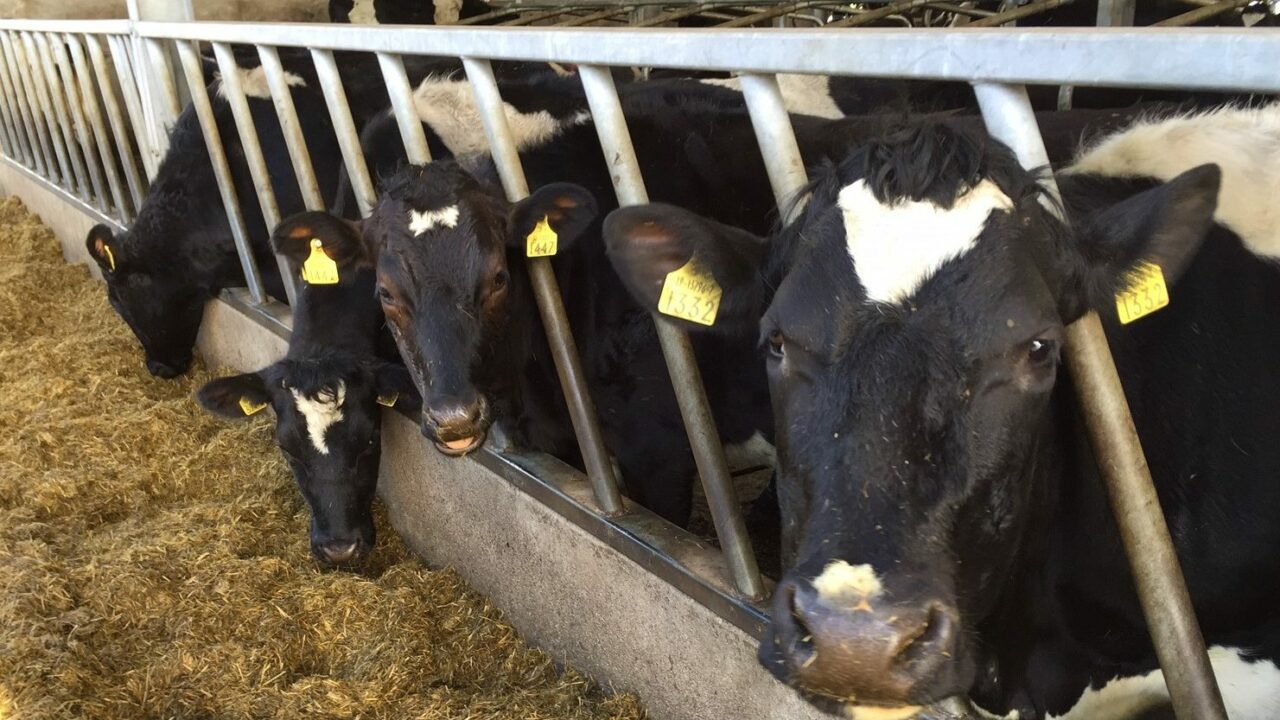Demand for concentrated feed this month is up to four times higher than volumes sought during the same period last summer, feed merchants have warned.
Speaking to AgriLand, Willie Boland – sales rep at Liffey Mills – said the average dairy farmer is feeding 6kg of concentrates per head per day as a result of the prolonged drought conditions.
“The normality for this time of the year is usually between 1kg and 2kg; but demand is definitely three to four times greater than normal in terms of tonnes of concentrates.
In the first week of July, we were back doing the equivalent feed to what we were doing in the first week of April – it’s phenomenal. The staff is back doing 24-hour shifts.
Meanwhile, John Grennan – managing director at J Grennan & Sons – said the pressure is having an acute impact on the company’s “bigger dairy customers” in the south and east of the country.
“We’re probably at about 1.5 times last year’s volume and that is very unusual,” Grennan told AgriLand.
Some guys are feeding up to 10kg per cow, where normally they would feed 3kg or 4kg at most at this time of the year.
“The drought is affecting the country to different degrees. As you go from Ballina to Wexford, the further down you come along that axis the worse it gets. The bigger dairy farmers seem to be the hardest hit.
“If farmers are feeding an extra 5kg or 6kg per cow over 100 cows, that is a half a tonne per day – that’s €140 a day gone out of your pocket,” he said.
Debt levels
Although Liffey Mills and J Grennan & Sons are keeping up-to-date with orders, other grain merchants are struggling with backlogs.
Both companies also warned of the long-term implications of the situation on farm debt levels.
Continuing, Grennan added: “Most of our customers would be on 60 or 90 day payment arrangements; but, for some of them, we now have re-write credit limits.
Some people are looking to see if they can up their credit limit with us by €5,000 or €6,000; others are trying to kick it down the road further.
Concerns were also raised over looming fodder shortages this winter.
Midlands-based Grennan said: “I see huge problems this winter. The amount of rain we got yesterday, and what’s in the forecast, isn’t going to bring grass growth back to normal or anything like it.
“Around here, fellas are eating into next winter’s silage; so whether it’s a normal winter, or a very difficult winter, there is going to be huge problems down the road and huge expense.”
Winter Fodder
Meanwhile, Pat McCormack – president of the Irish Creamery Milk Suppliers’ Association (ICMSA) – said the reports coincide with his association’s own analysis.
“We have to take action now that recognises where this situation could end up and we have to start planning now for next winter’s fodder situation,” he said.
He outlined the reality of considering mass importation of fodder over the coming months.
It will almost certainly mean quickly consulting and introducing specific aid schemes in addition to nominal, or no interest, loans.
“It also means looking very, very hard at practical suggestions like the Farm Management Deposit Scheme. That will permit farmers to break this cycle of going year-to-year, without anyway of balancing incomes and enabling farmers to put away funds in good years for precisely this kind of challenge,” he said.
He urged co-ops, beef factories and feed merchants to support their “farmer partners” through this difficult period.
“Specifically, that means paying a fair price to the farmers and – I have to say – where the beef factories are concerned, that is most certainly not what we’re seeing,” he concluded.
